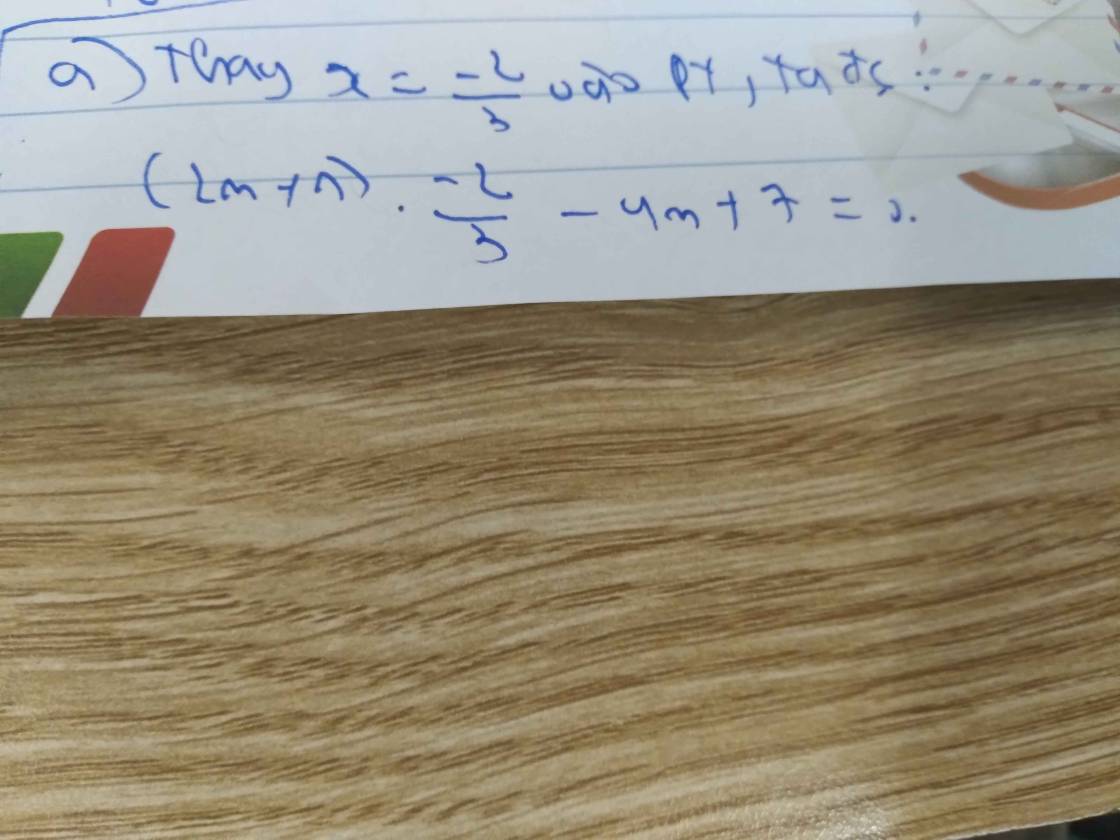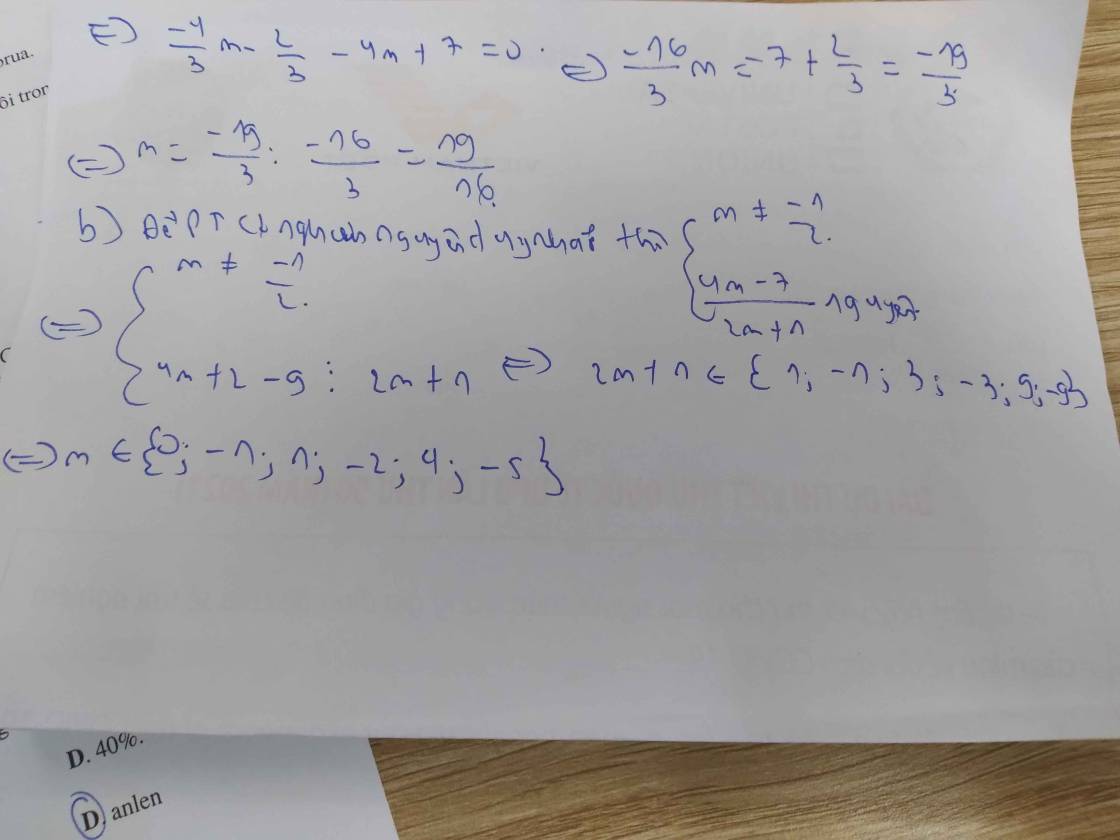Hãy nhập câu hỏi của bạn vào đây, nếu là tài khoản VIP, bạn sẽ được ưu tiên trả lời.

\(\dfrac{x+101}{2001}+\dfrac{x+99}{2003}=\dfrac{x+100}{2002}+\dfrac{x+98}{2004}\)
\(\Leftrightarrow\left(\dfrac{x+101}{2001}+1\right)+\left(\dfrac{x+99}{2003}+1\right)=\left(\dfrac{x+100}{2002}+1\right)+\left(\dfrac{x+98}{2004}+1\right)\)
\(\Leftrightarrow\dfrac{x+2102}{2001}+\dfrac{x+2102}{2003}=\dfrac{x+2102}{2002}+\dfrac{x+2102}{2004}\)
\(\Leftrightarrow\dfrac{x+2102}{2001}+\dfrac{x+2102}{2003}-\dfrac{x+2102}{2002}-\dfrac{x+2102}{2004}=0\)
\(\Leftrightarrow\left(x+2102\right)\left(\dfrac{1}{2001}+\dfrac{1}{2003}-\dfrac{1}{2002}-\dfrac{1}{2004}\right)=0\)
Vì \(\dfrac{1}{2002}+\dfrac{1}{2003}-\dfrac{1}{2002}-\dfrac{1}{2004}\ne0\)
\(\Rightarrow x+2102=0\)
\(\Rightarrow x=-2102\)
\(\Rightarrow S=\left\{-2102\right\}\)

Bạn ơi xem và trả lời hộ bài của mình đi , mình cảm ơn !!!
\(x^2-\left(m+3\right)x+3m=0\)
\(\Delta=\left(m+3\right)^2-4.1.3m=m^2+6m+9-12m\)
\(=m^2-9m+9=\left(m-3\right)^2\)
Để pt có 2 nghiệm phân biệt thì \(\left(m-3\right)^2>0\)
\(\Rightarrow m\ne3\)

\(\frac{x+1}{2004}+1+\frac{x+2}{2003}+1=\frac{x+3}{2002}+1+\frac{x+4}{2001}+1\)
\(\Leftrightarrow\frac{x+2005}{2004}+\frac{x+2005}{2004}-\frac{x+2005}{2003}-\frac{x+2005}{2003}=0\)
\(\Leftrightarrow\left(x+2005\right)\left(\frac{1}{2004}+\frac{1}{2003}-\frac{1}{2002}-\frac{1}{2001}\right)=0\)
\(\Leftrightarrow x+2005=0\Leftrightarrow x=-2005\)
=> (x+1)/2004+1+(x+2)/2003+1=(x+3)/2002+1+(x+4)/2001+1
=> (x+2005)/2004+(x+2005)/2003=(x+2005)/2002+(x+2005)/2001
=> (x+2005)(1/2004+1/2003-1/2002-1/2001)=0
=> x+2005=0
=> x=-2005

$ĐKXĐ : x \neq 2, x \neq -2$
Ta có : $1+\dfrac{2}{x-2} = \dfrac{2x^2}{x^2-4}$
$\to \dfrac{x^2-4+2.(x+2)}{(x-2).(x+2)} = \dfrac{2x^2}{(x-2).(x+2)}$
$\to x^2-4+2.(x+2) = 2x^2$
$\to x^2 -2x - 8 = 0 $
$\to (x-4).(x+2) = 0 $
$\to x = 4$ ( Do $x \neq -2, 2$ )
Vậy \(S=\left\{4\right\}\)


Thay x = 2 vào phương trình:
\(3.m.2-2m=2+2\)
\(\Leftrightarrow6m-2m=4\)
\(\Leftrightarrow4m=4\Leftrightarrow m=1\)
Vậy m = 1 thì phương trình có nghiệm x = 2